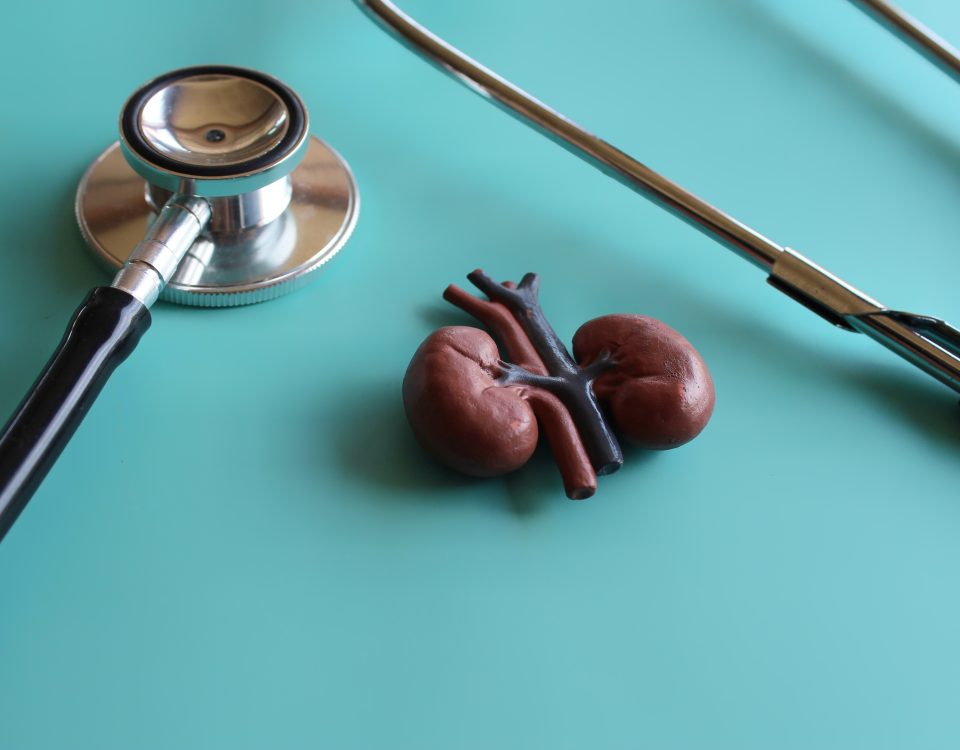How to Manage Your Cardiovascular Health
by: Dr. Paul Chang, General Practitioner, Regis Medical
Last updated: November 29, 2025
Cardiovascular health is very important to keeping yourself healthy and retaining a good quality of life. Cardiovascular disease, or heart disease, is the leading cause of death globally, accounting for 32% of global deaths.
What is Cardiovascular Health
Cardiovascular health refers to the health of the heart and blood vessels. The heart pumps blood across your entire body, including your vital organs. Blood carries oxygen and various other nutrients while removing waste and toxins. A healthy, functioning heart is essential, but your blood vessels also play a part in keeping the blood flow within your body healthy and constant.
This highlights the importance of the cardiovascular system to the body, as poor cardiovascular health can affect other vital organs and parts of the body, causing many unwanted health complications.
Common Cardiovascular Diseases in Singapore
Cardiovascular disease trends in Singapore are similar to the global trend, as it is the second leading cause of death after cancer, accounting for 32% of all deaths in 2021. Coupled with the rise in the prevalence of chronic health conditions related to heart diseases, such as high cholesterol, hypertension, and diabetes, it is likely that the number of heart disease-related deaths will continue to increase in Singapore.
Many Singaporeans have a sedentary lifestyle where most of their time is spent seated down, be it at work or home. This sedentary lifestyle together with a lack of exercise and a bad diet can lead to obesity. This was made worse by the recent Covid-19 pandemic. It is not uncommon nowadays in Singapore to hear of 30-40 plus year olds suffering from heart attacks. Hence at Regis Medical, we hope to bring more attention to this growing problem.
Here is a list of common cardiovascular diseases in Singapore:
Coronary Artery Disease
Coronary artery disease is the most common type of cardiovascular disease. This disease causes blockages in the coronary arteries that supply blood to your heart. Plaque that is built up within the coronary arteries may be a combination of cholesterol, calcium, fats and other substances.
This is sometimes referred to as “clogged arteries”. As a result of the blockage, the heart is unable to get sufficient oxygen due to reduced blood flow, leading to chest pains, shortness of breath and a potential heart attack. If left untreated, the disease can cause the heart to weaken over time, potentially resulting in heart failure.
Heart Arrhythmias
Heart arrhythmia refers to a heart disorder which results in irregular heartbeats. Arrhythmia can cause the heart to beat:
- Too fast (tachycardia)
- Too slow (bradycardia)
- Too early (premature contraction)
- Too erratically (fibrillation)
Arrhythmia can often be harmless but can be dangerous if it interferes with blood flow to your body, leading to organ damage which can be potentially life-threatening. Certain arrhythmias also can cause Stroke if left untreated.
Atherosclerosis
Atherosclerosis refers to the buildup of plaque in the arteries, resulting in the narrowing of arteries that hinders blood flow. The plaque may later cause blood clots.
Congenital heart defects
These defects develop during the fetus’ growing phase and are usually undiagnosed. These conditions affect the development of the baby’s heart, including its structure and the way it works. These defects can range from mild to severe, with critical congenital heart defects requiring surgeries or other procedures within the baby’s first year of life. Depending on the severity of the defects and heart condition, people with congenital heart defects may require additional procedures in adulthood, or experience health complications.
Cardiomyopathy
Cardiomyopathy causes the heart muscle to grow weak. It may be stretched, thickened or stiff. The muscle becomes too weak to pump blood normally, reducing blood flow and oxygen throughout the body. This can cause abnormal heart rhythm and even heart failure.
Heart Valve Disease
The human heart has four valves and heart valve disease occurs when one or more valves do not work properly. The valves ensure that blood flows inside the heart correctly, and the disease can cause a disruption of blood flow in the heart. This disease may require surgery to repair or replace the malfunctioning valve.
Risk Factors of Cardiovascular Diseases
Risk factors of cardiovascular diseases include:
- Age: As you age, the risk of your arteries narrowing and being damaged increases, as well as the weakening and thickening of the heart muscle.
- Sex: Men are generally more prone to developing heart disease. For women, their risk of developing heart diseases increases after menopause.
- Family History: If you have a family member, especially a parent, with heart disease, you are at an increased risk of developing coronary artery disease.
- Smoking: Smoking has been proven to narrow blood vessels due to nicotine. The carbon monoxide inhaled can also damage your blood vessels. Studies have shown that smokers are approximately 2 to 4 times more likely to develop coronary heart disease in comparison to non-smokers.
- Poor diet: Having a poor diet that is high in sodium, sugar and cholesterol can lead to the development of diabetes, hypertension and high blood pressure, which can lead to the development of heart diseases when left uncontrolled.
- High blood pressure: High blood pressure, if left unmanaged, can cause your arteries to harden and thicken, narrowing your blood vessels. This can affect blood flow, causing heart diseases.
- Diabetes: Heart disease can be a complication of diabetes. The two also share common risk factors, such as obesity and high blood pressure.
- High blood cholesterol levels: High blood cholesterol levels can cause plaque to build up in your blood vessels, leading to heart diseases such as atherosclerosis.
- Obesity: Obesity has been linked to the development of various cardiovascular diseases, as well as related health conditions such as diabetes, high cholesterol and hypertension.
- Physical inactivity: Similar to obesity, the lack of physical exercise can lead to the development of various cardiovascular diseases, as well as related health conditions such as diabetes, high cholesterol and hypertension.
- Stress: High levels of stress over a long period of time can cause spikes in blood pressure which can damage blood vessels, increasing your risk of developing heart diseases.
Cardiovascular Disease Treatment
The treatment methods for cardiovascular diseases will depend on the type of disease as well as how severe it is.
Medication
There are many types of drugs suitable for treating cardiovascular diseases, but the specific drug prescribed will depend on your condition. Commonly used drugs for treating cardiovascular diseases include:
- Anticoagulants - Blood thinners reduce the chances of blood clots forming in the blood vessels and heart, as well as preventing existing clots from becoming larger in size.
- Angiotensin - converting enzyme (ACE) inhibitors prevent your body from producing a substance that increases blood pressure and narrows your blood vessels. This allows your blood to flow normally.
- Beta-blockers - help to lower blood pressure by blocking the effects of adrenaline on the heart, making your heart pump slower and with less force.
- Calcium channel blockers - help to lower blood pressure by relaxing your blood vessels. The drug reduces the effect of calcium on your cardiovascular system, effectively slowing heart rate, reducing the stress put on your heart.
- Diuretics - sometimes known as water pills, remove excess fluids and sodium from the body via urination. This decreases the heart’s workload.
- Statins - help to lower your blood cholesterol, decreasing levels of low-density lipoprotein cholesterol that can cause the accumulation of plaque in your blood vessels.
Heart Surgery
Surgery may be recommended in order to keep your symptoms under control or lower the risk of future heart failure, in order to prolong the life of the patient. Heart surgeries may sometimes be part of an emergency treatment.
Common heart surgical procedures include:
- Coronary artery bypass grafting, also known as a heart bypass, is the most common type of heart surgery. A healthy artery or vein from somewhere else in your body is used to connect to blood supply past the coronary artery that is blocked. This allows your blood flow to bypass the blocked artery towards the heart.
- Heart valve repair or replacement. Faulty valves can sometimes be repaired, but for those that cannot be repaired, they have to be replaced with either artificial valves or valves made from pigs or cows. This may not be suitable for everyone.
- Heart transplant. The diseased heart is removed and replaced with healthy human heart that is donated. The heart will have to be suitable for the patient before the surgery can be carried out.
- Insertion of a pacemaker or an implantable cardioverter defibrillator (ICD). For arrhythmia, where the heart beats irregularly, a pacemaker may be implanted. The pacemaker uses electrical pulses to ensure that the heart beats normally. An ICD works in a similar manner but uses an electric shock instead.
Other types of surgeries may be recommended by a specialist depending on the severity and type of heart condition you have.
Preventing Cardiovascular Diseases
Cardiovascular diseases tend to be very dangerous and often life-threatening. Hence it is important for primary prevention of cardiovascular diseases, via early detection through regular health screening and early intervention. Here at Regis Medical, we take a proactive approach to managing these risks for you. Here are some of heart-healthy lifestyle tips that can help you prevent cardiovascular diseases:
Maintaining a healthy weight
Being overweight or obese will significantly increase your risk of developing cardiovascular disease. A healthy body mass index (BMI) range to keep within is 18.5 to 24.9. Lifestyle changes can be adopted to lose weight, including a change in diet and staying physically active.
Healthy Diet
An unhealthy diet can contribute to the development of cardiovascular diseases and other related illnesses. A healthy diet not only helps to protect your heart, but also keeps your blood sugar, blood cholesterol, and blood pressure in check.
A healthy diet should aim to include a wide range of foods such as:
- Vegetables and fruits
- Beans
- Lean meat
- Fish
- Low-fat or fat-free dairy foods
- Whole grains
- Healthy fats
On the other hand, foods that are bad for your health should be avoided or kept to a minimum as much as possible. These include:
- Processed foods
- Foods high in sodium content
- Foods high in sugar content
- Sugary drinks
- Processed carbohydrates
- Alcohol
- Foods high in saturated fats
- Foods high in trans fats
By keeping to a healthy diet, you can ensure that your body gets sufficient nutrients without putting you at greater risk of cardiovascular disease.
Staying physically active
Regular exercise leads to direct and indirect benefits to your health. It has been shown that exercise can aid in lowering BMI, which helps with lowering blood pressure, improving insulin sensitivity, and improving LDL and HDL levels. It is recommended for adults to engage in moderate to intense aerobic exercises for at least 2 hours and 30 minutes a week, which averages to about 30 minutes a day. Simple exercises such as brisk walking can make a big difference in your journey towards preventing heart diseases. We should also aim to maintain a good level of baseline activity, which can be monitored by the number of steps we take a day.
Quit smoking
Smoking is damaging to your cardiovascular health and puts you at a heightened risk for many health complications. Studies have shown positive results in lowering the risk of developing heart diseases just by quitting smoking. For example, within a year of quitting, the risk of heart attack drops dramatically.
Improve your sleep
A lack of sleep, as well as sleep quality can contribute to greater risks of developing cardiovascular diseases. It is recommended that you have at least 7 hours of sleep every night. Keeping a regular sleep schedule can help improve sleep quality. If you have sleep disorders that are affecting your sleep quantity and/or sleep quality, we are here to listen to your concerns and help you get a good night’s rest.
Regular health screenings
High blood pressure and high cholesterol can damage the cardiovascular system, leading to cardiovascular diseases. However, because these conditions do not usually show any symptoms until later stages, many patients remain undiagnosed. Diabetes is a similar common chronic condition that can lead to heart disease. By regularly screening for such conditions, you can ensure early detection and intervention to prevent serious complications from developing.
Cardiovascular Health and Stress Management
Stress can increase your risk of cardiovascular diseases. It is good to relieve stress, but some people choose to deal with stress in unhealthy ways. For example, overeating, excessive drinking, smoking or even substance abuse. All these methods are destructive to your health. Choose alternative ways of managing stress such as exercising or relaxation exercises like yoga, that can be both effective in relieving stress and also keeping your body healthy.

Early Intervention
If you are at a higher risk of developing cardiovascular diseases, early intervention is key in halting the progression of cardiovascular risk factors. Primary prevention programs can be effective in detecting cardiovascular risk factors as well as improving your cardiovascular health, ultimately reducing the risk of cardiovascular diseases in the future. Being educated on the risk factors of cardiovascular health, the importance of good cardiovascular health and finally, how to reduce these risk factors can be vital in safeguarding your health.
Here are some ways in which early intervention can be helpful to you:
Leading a healthy lifestyle
Leading a healthy lifestyle is key in preventing the development of not only cardiovascular diseases but other types of diseases as well, especially chronic illnesses that become more prevalent as we age. It is ideal that these healthy lifestyle habits are instilled since young, but you can adopt these habits at any age. This can include:
- Stay physically active and fit
- Quit smoking
- Stick to a healthy diet (low in sugar, fats and sodium)
Identifying high risk individuals
If you are at a higher risk of developing cardiovascular diseases, it is important that you are identified as such as soon as possible. This can be done through regular health screening. Early detection and treatment of silent diseases can help you prevent possible health complications that can lead to cardiovascular diseases.
How to Improve Cardiovascular Health
Improving your cardiovascular health is long term project and requires determination and discipline. However, it does not require complicated techniques or equipment and you can start today.
Physical exercise
Your cardiovascular health is ultimately tied to your overall physical health and the heart itself is also a muscle that can be strengthened. It is recommended that you get at least 150 minutes of moderate intensity aerobic exercise every week, or 75 minutes of high intensity vigorous exercise. This can also serve the purpose of keeping your weight in check and lowering your overall blood pressure levels, which are risk factors for developing cardiovascular diseases.
Even while not exercising, during your daily routine, you should keep active by moving around once in a while. Avoid staying seated for extended periods of time. Physical inactivity has been linked to greater risks of cardiovascular diseases and moving about frequently while you are seated at work or at home can help you reduce these risks significantly.
Physical Exercises Good for Cardiovascular Health
When it comes to improving your cardiovascular health through exercise, the most important thing is to improve your cardiovascular endurance. If you have any underlying medical issues, it is best to ask for a doctor’s advice on the types of exercises you are suitable for.
Aerobic exercises can help you improve your cardiovascular endurance greatly. The benefits of improving your cardiovascular endurance via aerobic exercises include:
- Your heart pumps more efficiently
- Your lungs become more efficient
- Improved blood circulation and volume
- Lowered resting heart rates
- Your body uses fat as an energy source
- Lowered risk of developing various diseases including cardiovascular diseases
There are many different types of aerobic exercises to get your heart pumping. You should choose something that you enjoy, if possible, as you will need to exercise regularly and make it a long-term lifestyle choice to see the best effects. This can include:
- Brisk walking
- Running
- Jogging
- Swimming
- Cycling
- Playing tennis
- Jumping rope
- Stair climbing
- Hiking
Experiment with the intensity and duration of the exercise to see what suits your body best, while setting attainable goals so you can make gradual progress towards improving your cardiovascular health.
Diet
Generally, you will want to cut down on foods high in sugar, sodium, saturated and trans-fats. You do not need to completely cut out these types of foods from your diet, but instead, consume them in moderation or try to replace them with foods that are healthier. Fad diets are not encouraged, but rather a sustainable approach to a healthy diet is preferred.
Food Good for Cardiovascular Health
There are a few types of foods that you can adopt into your regular diet that are healthy for your heart. These include:
- Foods high in omega-3 fatty acids (Salmon, mackerels, cod liver oil, etc.)
- Avocados, which are nutrient-dense and high in dietary fiber, minerals, and healthy fats.
- Foods high in antioxidants (Broccoli, spinach, carrots, etc.)
- Low fat dairy products
If you are looking for a healthy diet plan, you can try out the Mediterranean Diet. This refers to a generic term based on the traditional eating habits of countries near the Mediterranean Sea. While eating styles amongst these countries vary, they share similar factors that make the Mediterranean Diet suitable for those who wish to keep their hearts healthy.
A Mediterranean diet usually focuses on:
- Olive oil as the primary fat source
- Large amounts of fruits, vegetables, bread and other grains, potatoes, beans, nuts and seeds
- Low to moderate amounts of dairy products, eggs, fish and poultry
Meat is less common in this diet and is replaced by fish and poultry. The Mediterranean diet can be healthy for your heart because it:
- Reduces the amount of sugar, sodium, highly processed foods, refined carbohydrates, saturated fats, and fatty or processed meats consumed
- Olive oil can help the body remove excess cholesterol
- Emphasis on vegetables, fruits, whole grains, beans and legumes that are high in fiber can reduce blood pressure and inflammation. These foods also tend to be nutrient-dense which is good for our bodies overall.

Screening for Cardiovascular Diseases
Many types of health screening are used to test for cardiovascular diseases. A physical examination alongside a review of your medical history will help your doctor recommend tests that are suitable for you.
These tests include:
- Blood tests - Your blood is tested for substances such as creatinine, kinase and troponin that are released into the bloodstream during a heart attack. These tests will allow your doctor to confirm a heart attack, estimate the time of an attack and detect damage to the heart muscle.
- Chest X-ray - An X-ray of the chest can show the size and shape of your heart, blood vessels and lungs.
- Electrocardiogram (ECG) - An ECG provides information of your heart rhythm, heart rate, electrical abnormalities, and thickening of the heart muscle. It can also reveal previous or ongoing heart attacks as well as poor blood supply to the heart.
- Holter Monitoring - This test requires the patient to wear an ambulatory ECG for 24 to 48 hours. This allows abnormal heart rhythms or abnormalities to be recorded over a prolonged period.
- Exercise stress test - This test requires you to run on a treadmill while wearing the ECG electrodes. Speed and elevation gradually increase during the test and will continue until you reach your target exercise heart rate or are unable to continue or experience chest pains.
- Echocardiography - Echocardiography is an ultrasound of the heart that creates a detailed imaging of the heart. This allows for heart conditions to be spotted via assessing the internal structure, movement, chambers, and valves of your heart.
- Computed Tomography (CT) scan - A CT scan creates detailed images of the body, including the heart and surrounding blood vessels. This helps to screen for cardiac tumors, aortic disease, and pericardial disease
- CT Coronary Angiogram - This type of CT scan includes the use of a dye injection. This test helps to screen for narrowed or blocked arteries in the heart and other heart diseases.
- Magnetic Resonance Imaging (MRI) - A MRI helps to create detailed three-dimensional images for your internal organs with the use of a magnetic field. This helps with a closer look at the heart muscle structure.
- Cardiac Nuclear Imaging - This test makes use of a very small amount of radioactive material (tracers) combined with the use of a gamma camera to create detailed images of the blood flow through your cardiovascular system. This can sometimes be combined with an exercise stress test.
Early detection of cardiovascular diseases through screening can be vital to saving your health or even your life as it allows you to make the necessary changes to your lifestyle or get proper medication and treatment before the diseases worsen.
Screen for Cardiovascular Health with Regis Medical Health Screening
Comprehensive, fast result, personalised review session
Disclaimer:
The information on this website, including but not limited to, text, graphics, images, videos and all other materials contained on this website is for informational purposes only. None of the material is meant to replace a certified and registered Doctor's professional medical advice, diagnosis, and treatment.
No warranties or representations are given in respect of the medical information. Regis Medical, Regis Medical’s staff, and the website's operator will not be held liable if a user suffers any injury or loss after relying upon the medical information on this website.
Any devices used for technology-enhanced therapies are intended for use only for general well-being purposes or to encourage or maintain a healthy lifestyle and is not intended to be used for any medical purpose (such as the detection. diagnosis, monitoring, management or treatment of any medical condition or disease). Any health-related information provided by this device or software should not be treated as medical advice. Please consult a certified and registered Doctor for any medical advice required.
“10 Small Steps for Better Heart Health.” Harvard Health, Harvard Health Publishing, 16 Dec. 2019, https://www.health.harvard.edu/healthbeat/10-small-steps-for-better-heart-health.
“12 Foods That Are Very High in Omega-3.” Healthline, Healthline Media, 17 May 2022, https://www.healthline.com/nutrition/12-omega-3-rich-foods.
“3 Kinds of Exercise That Boost Heart Health.” Johns Hopkins Medicine, Johns Hopkins Medicine, 3 Nov. 2021, https://www.hopkinsmedicine.org/health/wellness-and-prevention/3-kinds-of-exercise-that-boost-heart-health.
“30 Ways to Improve Your Heart Health Quickly and Naturally.” Healthline, Healthline Media, 18 Apr. 2022, https://www.healthline.com/health/heart-health/how-to-improve-heart-health-quickly#good-habits.
Amin, Amrin. “News Highlights.” Ministry of Health, Ministry of Health, 29 Sept. 2019, https://www.moh.gov.sg/news-highlights/details/speech-by-mr-amrin-amin-senior-parliamentary-secretary-ministry-of-home-affairs-ministry-of-health-at-the-launch-of-national-heart-week-world-heart-day-2019-29-september-2019-at-kampung-admiralty.
“Arteriosclerosis / Atherosclerosis.” Mayo Clinic, Mayo Foundation for Medical Education and Research, 1 July 2022, https://www.mayoclinic.org/diseases-conditions/arteriosclerosis-atherosclerosis/symptoms-causes/syc-20350569.
Beckerman, James. “Heart Disease and Cardiomyopathy.” Enlarged Heart (Cardiomyopathy) Symptoms, Causes, Treatments, WebMD, 4 June 2022, https://www.webmd.com/heart-disease/guide/muscle-cardiomyopathy.
Beckerman, James. “Heart Disease: Types, Causes, and Symptoms”, WebMD, WebMD. 14 June 2021, https://www.webmd.com/heart-disease/heart-disease-types-causes-symptoms.
Brennan, Dan. “What Is Cardiovascular Endurance?” Cardiovascular Endurance: What It Is, and How to Improve It, WebMD, 27 Nov. 2021, https://www.webmd.com/fitness-exercise/what-is-cardiovascular-endurance#:~:text=Cardiovascular%20endurance%20is%20a%20measure,carry%20out%20your%20daily%20tasks.
“Childhood Intervention Key to Lifelong Heart Health.” American College of Cardiology, American College of Cardiology, 6 Dec. 2018, https://www.acc.org/latest-in-cardiology/articles/2018/12/06/13/33/childhood-intervention-key-to-lifelong-heart-health.
“Coronary Artery Disease.” Mayo Clinic, Mayo Foundation for Medical Education and Research, 25 May 2022, https://www.mayoclinic.org/diseases-conditions/coronary-artery-disease/symptoms-causes/syc-20350613#:~:text=Coronary%20artery%20disease%2C%20also%20called,are%20almost%20always%20to%20blame.
“Diagnosis and Treatment.” Singapore Heart Foundation, Singapore Heart Foundation, https://www.myheart.org.sg/health/diagnosis-and-treatment/.
William S. Weintraub, et al. “Early Intervention for Primary Prevention for Cardiovascular Disease.” PACE, Physicians' Academy for Cardiovascular Education, 2011, https://pace-cme.org/2011/09/05/early-intervention-for-primary-prevention-for-cardiovascular-disease/.
“Everything You Need to Know About Heart Disease.” Heart Disease: Risk Factors, Prevention, and More, Healthline Media, 30 Mar. 2018, https://www.healthline.com/health/heart-disease#symptoms-of-heart-disease.
“Everything You Want to Know about Arrhythmia.” Arrhythmia, Healthline Media, 28 Mar. 2022, https://www.healthline.com/health/arrhythmia#types.
“Acupuncture Alleviates Coronary Artery Disease.” HealthCMi, Healthcare Medicine Institute, 22 Mar. 2019, https://www.healthcmi.com/Acupuncture-Continuing-Education-News/1944-acupuncture-alleviates-coronary-artery-disease.
“Health Effects of Cigarette Smoking.” Smoking & Tobacco Use, Centers for Disease Control and Prevention, 29 Oct. 2021, https://www.cdc.gov/tobacco/data_statistics/fact_sheets/health_effects/effects_cig_smoking/index.htm#:~:text=Top%20of%20Page-,Smoking%20and%20Increased%20Health%20Risks,%2C%20stroke%2C%20and%20lung%20cancer.&text=Estimates%20show%20smoking%20increases%20the,by%202%20to%204%20times&text=For%20stroke%20by%202%20to%204%20times.
“Heart Disease Statistics.” Singapore Heart Foundation, Singapore Heart Foundation, https://www.myheart.org.sg/health/heart-disease-statistics/#:~:text=In%20Singapore%2C%2021%20people%20die,to%20heart%20diseases%20or%20stroke.
“Heart Disease.” Mayo Clinic, Mayo Foundation for Medical Education and Research, 9 Feb. 2021, https://www.mayoclinic.org/diseases-conditions/heart-disease/diagnosis-treatment/drc-20353124#:~:text=In%20general%2C%20treatment%20for%20heart,Medications.
“Heart Disease.” Mayo Clinic, Mayo Foundation for Medical Education and Research, 9 Feb. 2021, https://www.mayoclinic.org/diseases-conditions/heart-disease/symptoms-causes/syc-20353118.
“Heart Failure.” NHS Choices, NHS, 19 May 2022, https://www.nhs.uk/conditions/heart-failure/#:~:text=Heart%20failure%20means%20that%20the,your%20heart%20has%20stopped%20working.
“Heart Valve Disease.” Mayo Clinic, Mayo Foundation for Medical Education and Research, 29 Sept. 2021, https://www.mayoclinic.org/diseases-conditions/heart-valve-disease/symptoms-causes/syc-20353727#:~:text=In%20heart%20valve%20disease%2C%20one,your%20body%20to%20be%20disrupted.
Meng Khoo, Chin, and E Shyong Tai. “Trends in the incidence and mortality of coronary heart disease in asian pacific region: the Singapore experience.” Journal of atherosclerosis and thrombosis vol. 21 Suppl 1 (2014): S2-8. doi:10.5551/jat.21_sup.1-s2
Ni, Yu-Ming & Frishman, William. “Acupuncture and Cardiovascular Disease: Focus on Heart Failure.” Cardiology in Review. 26. 93-98. (2018). 10.1097/CRD.0000000000000179.
“Preventive Cardiology Programme.” Our Services, National University Heart Centre, Singapore, 29 Jan. 2022, https://www.nuhcs.com.sg/Our-Services/Specialties/Pages/Preventive-Cardiology-Programme.aspx.
“Principal Causes of Death.” HealthHub, Ministry of Health, 12 Apr. 2022, https://www.healthhub.sg/a-z/health-statistics/4/principal-causes-of-death.
Shannon, Heather. “7 Powerful Ways You Can Strengthen Your Heart.” UCI Health, UCI Health, 9 Feb. 2017, https://www.ucihealth.org/blog/2017/02/how-to-strengthen-heart.
Sorrentino, Matthew J. “Early intervention strategies to lower cardiovascular risk in early nephropathy: focus on dyslipidemia.” Cardiology clinics vol. 28,3 (2010): 529-39. doi:10.1016/j.ccl.2010.04.009
“Strategies to Prevent Heart Disease.” Mayo Clinic, Mayo Foundation for Medical Education and Research, 14 Jan. 2022, https://www.mayoclinic.org/diseases-conditions/heart-disease/in-depth/heart-disease-prevention/art-20046502.
Welch, Ashley. “Treatment and Prevention of Heart Disease”, EverydayHealth, EverydayHealth, 21 May 2018, https://www.everydayhealth.com/heart-disease/treatment-prevention/.
“What Are Congenital Heart Defects?” Congenital Heart Defects (CDHs), Centers for Disease Control and Prevention, 24 Jan. 2022, https://www.cdc.gov/ncbddd/heartdefects/facts.html.
“What Is the Mediterranean Diet?” Www.heart.org, American Heart Association, 21 July 2022, https://www.heart.org/en/healthy-living/healthy-eating/eat-smart/nutrition-basics/mediterranean-diet#:~:text=A%20Mediterranean%2Dstyle%20diet%20can,vegetable%20oils%20and%20nuts%3B%20and.
Yee, Tee Joo. “Prevention Programme for Heart Disease.” Heart Health, National University Heart Centre, Singapore, 25 July 2019, https://www.nuhcs.com.sg/Heart-Health/Articles/Pages/Prevention-Programme-for-Heart-Disease-.aspx.


